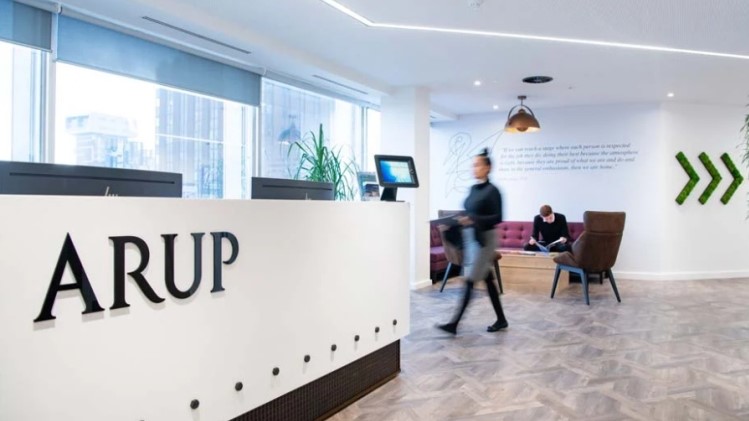
Arup will allow its 6,000 UK employees to choose their working days across a seven-day week, as it adopts a hybrid work model permanently.
Arup said the new model, known as Work Unbound, offers staff greater flexibility in deciding how and where they work.
A total of 6,000 UK-based employees will be able to work their hours flexibly over the course of Monday to Sunday.
The new system will allow Arup employees to work some of their contracted hours over a weekend rather than solely across the traditional Monday to Friday pattern.
The Work Unbound model will be introduced throughout 2021/22. It will also allow working remotely to become a permanent option, with UK employees able to choose their place of work for up to three days per week, with two days spent in one of the Arup offices. Arup said a reduction in employee travel will also help move the firm closer to its target of net zero emissions across its operations by 2030.
The adoption of the new model follows flexible working trials in both Arup’s Queensland, Australia and Liverpool, UK offices.
During the Liverpool trial, which was conducted before the pandemic over a three-month period between April and July 2019, Arup found that:
- Four in five of the 65 colleagues piloting the approach (82%) flexed their hours at some point during the pilot, varying the number of hours they worked each day up or down. More than a third (35%) chose to work at the weekend at some point during the pilot.
- Nearly nine in ten (88%) felt they had the flexibility to manage work and other commitments, compared to two thirds (64%) before the trial. Staff in the office mainly used this flexibility to balance day-to-day life activities, such as attending appointments, exercising or “life admin”.
- More than half (55%) chose to work remotely at some point during the week, compared to only a third (33%) before the pilot commenced.
- Nine in ten (91%) employees reported that leaders role modelled flexible working.
- Despite the flexibility offered, more than half (56%) of staff chose to work from the office during the pilot for five days per week.
The Liverpool pilot identified several benefits for both the business and members including increased productivity, with nearly nine in ten (87%) of employees feeling that their productivity improved. Colleague empowerment, work/life balance and well-being increased too, while people viewed the opportunity to work flexibly as a competitive offering to existing and prospective new members.
Arup’s office in Liverpool trialled flexible working between April and June 2019, with nearly nine in ten (87%) of employees feeling that their productivity improved.
Jerome Frost, chair of Arup’s UK, India, Middle East and Africa region, said: “Building significant flexibility into our colleagues’ working lives is something we’ve been experimenting with since before the pandemic. With the opportunity to flex working hours over the course of a seven-day week, we‘re empowering our members to find a working pattern that allows them to be at their personal best while delivering high quality work for clients.”
David Almond, senior engineer based in Arup’s Liverpool office, added: “The flexible working pilot gave me the opportunity to try different ways of working to suit my lifestyle. I found that having the flexibility and freedom to work whichever hours, suited the demands of a young family. It allowed me to make the most of my downtime, and ultimately have a healthier work-life balance.
“It also opened other options for travel to work as I wasn’t constrained to certain times or modes, and working from home occasionally removed the commute altogether – time which was spent productively elsewhere.”










